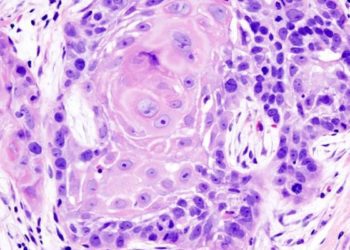Spironolactone may be effective in the treatment of acne vulgaris
1. Spironolactone showed more effective improvement in acne at 12 and 24 weeks after treatment initiation as compared with the placebo.
Evidence Rating Level:1 (Excellent)
Acne is highly prevalent in adolescents and can persist into adulthood. The first-line management of mild to moderate acne typically involves a combination of topical preparations containing retinoids, benzoyl peroxide, or antibiotics. One-third of patients seeking treatment for acne receive long oral antibiotic rouses (>28 days), which presents a concern for developing antibiotic resistance. Spironolactone, a potassium-sparing diuretic, may be a much-needed alternative to oral antibiotics given its anti-androgenic properties. The Spironolactone for Adult Female Acne (SAFA) trial aimed to assess whether spironolactone improves acne in women compared with placebo. From 10 centers in England and Wales, 407 eligible women – aged 18 years or over with facial acne for at least six months that warranted treatment with oral antibiotics – were randomly assigned in a 1:1 ratio to receive either 50 mg spironolactone (201 patients) or matched placebo (209 patients) once daily for the first six weeks and then two tablets daily at 6 weeks for a total of 24 weeks. Patients, staff, and investigators were masked to treatment allocations. The primary outcome measure was the 12-week mean Acne-QoL symptom subscale score, with higher scores reflecting improved quality of life. After adjusting for baseline variables, there was a small but statistically significant difference of 1.27 (95% CI 0.07 to 2.46) in the mean Acne-QoL symptom subscale score favoring the spironolactone group at 12 weeks. At 24 weeks, there was a larger mean difference of 3.45 (2.16 to 4.75), representing a statistically significant greater improvement in the spironolactone group. Furthermore, both clinicians and participants were more likely to report overall acne improvement from baseline than those in the placebo group. However, the spironolactone group experienced a higher incidence of adverse reactions, with headaches and dizziness mainly accounting for this difference. Overall, women reported significant improvements in acne when taking spironolactone as compared to placebo. These findings suggest that spironolactone may be a safe and effective alternative to oral antibiotics for adult women with persistent acne.
Click to read the study in BMJ
Image: PD
©2023 2 Minute Medicine, Inc. All rights reserved. No works may be reproduced without expressed written consent from 2 Minute Medicine, Inc. Inquire about licensing here. No article should be construed as medical advice and is not intended as such by the authors or by 2 Minute Medicine, Inc.







